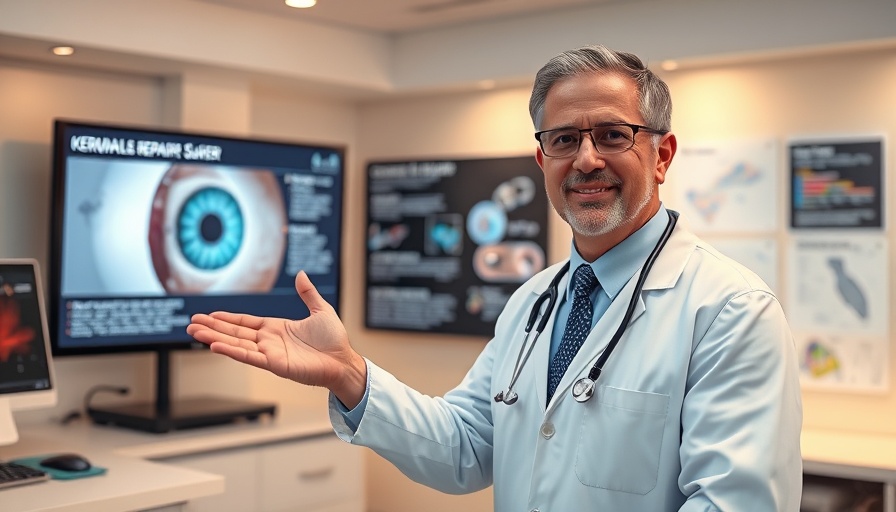
Understanding PRK: A Gentler Approach to Vision Correction
For those considering corrective eye surgery, photorefractive keratectomy (PRK) offers a compelling option. Unlike LASIK, which involves creating a corneal flap, PRK directly ablates the surface of the cornea. This means less invasiveness and a potentially lower risk of complications, making it suitable for patients with thinner corneas or those who participate in rigorous sports.
In 'Photorefractive Keratectomy (PRK) with Surface Ablation and Laser Surgery', the discussion dives into how PRK serves as a viable option for eye surgery, exploring key insights that sparked deeper analysis on our end.
Who Benefits Most from PRK?
PRK is ideal for individuals seeking an alternative to traditional glasses or contact lenses. Patients with nearsightedness, farsightedness, and astigmatism can benefit from this state-of-the-art procedure. Moreover, those who may not qualify for LASIK due to corneal thickness or lifestyle factors can find hope through PRK.
What to Expect After PRK Surgery
Recovery from PRK surgery often entails a short healing period where vision gradually improves over several days to weeks. Patients might experience mild discomfort, which can typically be managed with prescribed medications. It's crucial to follow the surgeon's post-operative care recommendations to ensure a smooth recovery.
Why It's Important to Choose the Right Surgeon
The effectiveness of PRK largely depends on the skill and experience of the surgeon. Opting for a reputable clinic and qualified professionals is vital in achieving optimal results. Resources such as Dr. Motwani's clinic, Cornea Revolution, and OptiCornea can provide valuable information on qualified practices in your area.
Finding the Right Fit for Your Vision Needs
If you're considering corrective eye surgery, understanding the differences between PRK and LASIK, and consulting with a professional can empower you to make the best decision for your vision. This is more than just about clarity—it's about regaining the freedom to experience life fully without the hindrances of corrective lenses.
 Add Row
Add Row  Add
Add 




 Add Row
Add Row  Add
Add 


Write A Comment